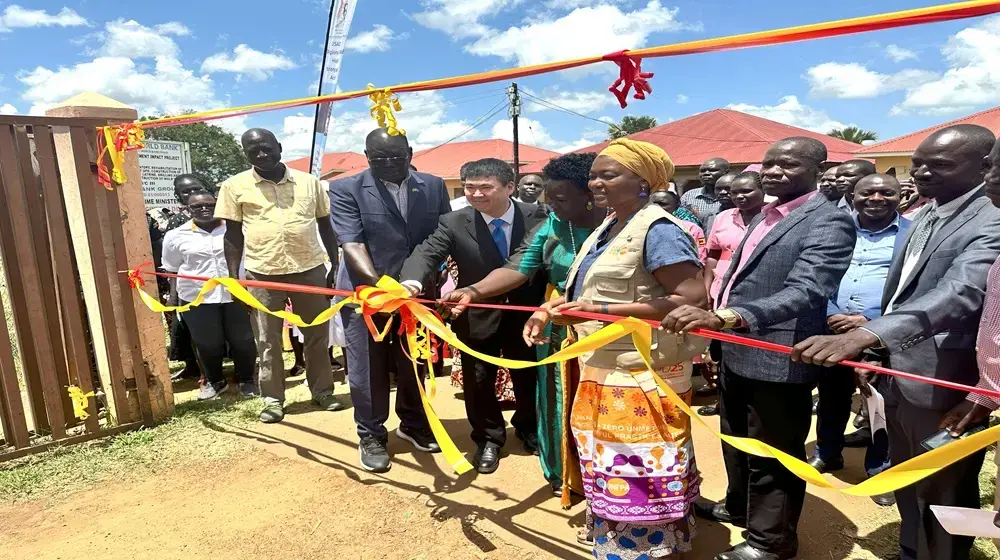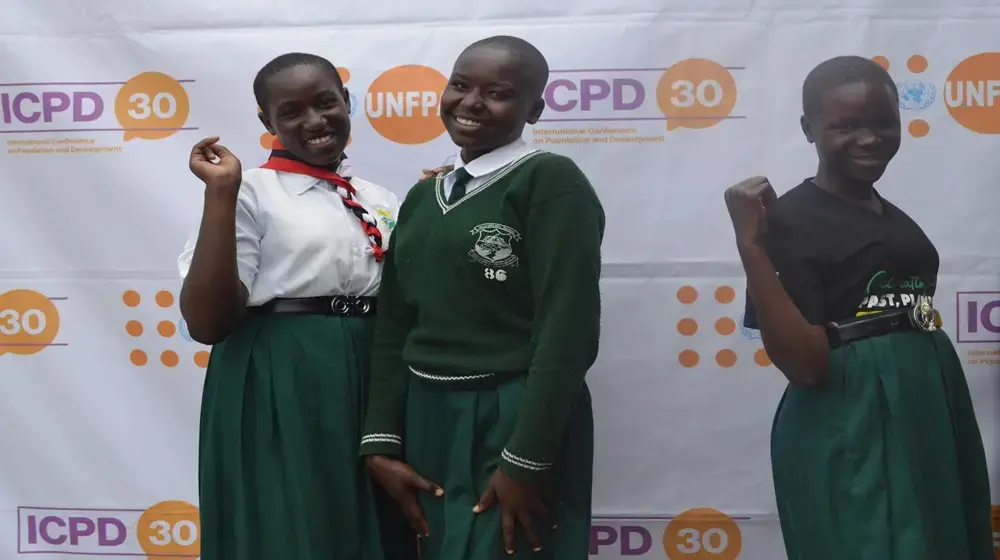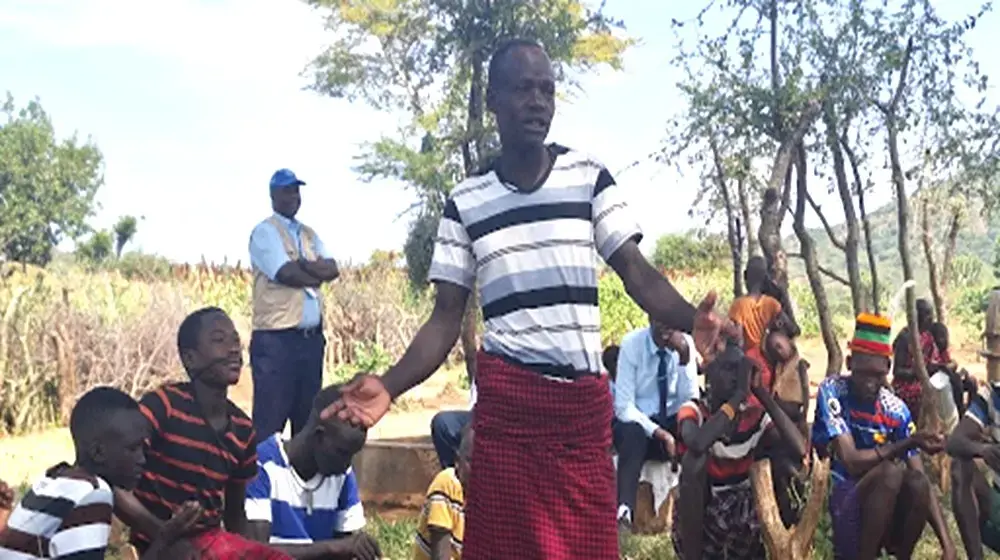GetIN, an online platform for health care providers to strengthen the linkage between health care providers and young pregnant women to provide timely and quality maternal health care, was launched in Kanungu district, Western Uganda on 1st November, 2017.
The rollout of GetIN mobile application is a part of UNFPA’s 15 years of continuous efforts to improve youth-friendly and maternal health service delivery to the district.
Despite its strong leadership in sexual and reproductive health, Kanungu still retains a high teenage pregnancy rate. According to Kanungu District Local Government Statistical Abstract 2014, 57 percent of the district population is below 24 years, and the teenage pregnancy rate is very high at 50 percent, doubling the national average of 25 percent.
In his remark, Mr. Byomuhangi Gad, the Vice Chairperson of Kanungu District, highlighted issues of teenage pregnancy: “Many young pregnant mothers cannot easily access health services.”
In many villages, it is challenging for young pregnant women to access health facilities due to geographical distance and cultural challenges, including stigmatization of pregnant girls.
Deep cultural belief still remains in many rural communities, and villagers believe that it is a shame for a family to have a young pregnant daughter. As a result, young pregnant women are often hidden and neglected by their communities.
With no support from families, living in a geographically isolated area, and a weak follow-up system by the health care providers, it is often challenging for the young pregnant women to seek adequate maternal health care.
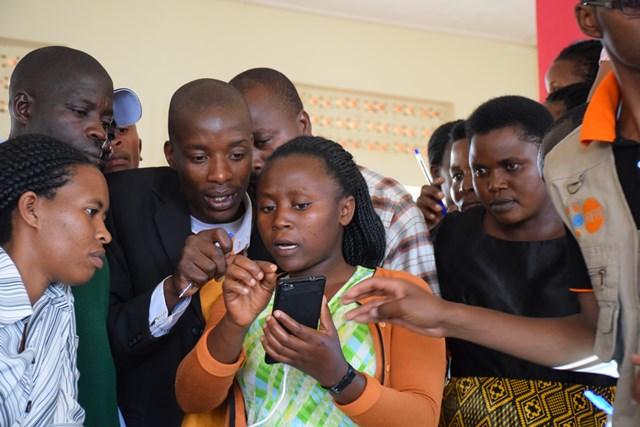
GetIN also collects accurate information of the young pregnant women (below 25 years old) and reports the data to a central dashboard, which is monitored by District Health Officer and District Bio-statistician. The dashboard provides information of the work done by the health care providers and creates an opportunity for the district health team to respond to any noted challenges in real time.
“GetIN will enhance the communication between health care providers and young pregnant women,” said Heph Kwesiga Muteesa a midwife at Kanungu District Hospital 4.
Donald Waruhanga, Technical Developer of GetIn, also enthusiastically explained benefits of GetIN offers, saying: “by utilizing this application, young pregnant women in rural communities will be able to access more health information and services. In a long run, our hope is to reduce maternal morbidity and mortality among young women.”
During the GetIN launch ceremony at the Kanungu Council Hall, UNFPA distributed 60 smartphones to the district. Sixty (60) Community Health Extension Workers (CHEWS) and 18 midwives were trained by young developers of GetINon how to use the new mobile application. 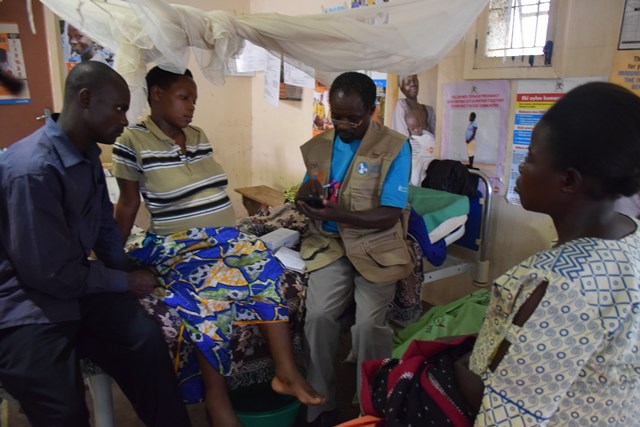
At the end of the training, two CHEWS from Kanungu Town Council undertook a mapping of the first three pregnant girls as a way of signifying the rollout of the application.
At the same event, UNFPA also introduced two innovation products: SafePal (a mobile application that young people can use to confidentially report cases of sexual and gender based violence and get linked to nearby health, legal and social services) and The ZONE (a free online portal for young people, provides age appropriate information on sexuality, body changes, relationship, and financing).
UNFPA believes that through innovative solutions, Uganda will register great improvements in sexual and reproductive health indicators for women and girls.
Story by Mina Nozawa


